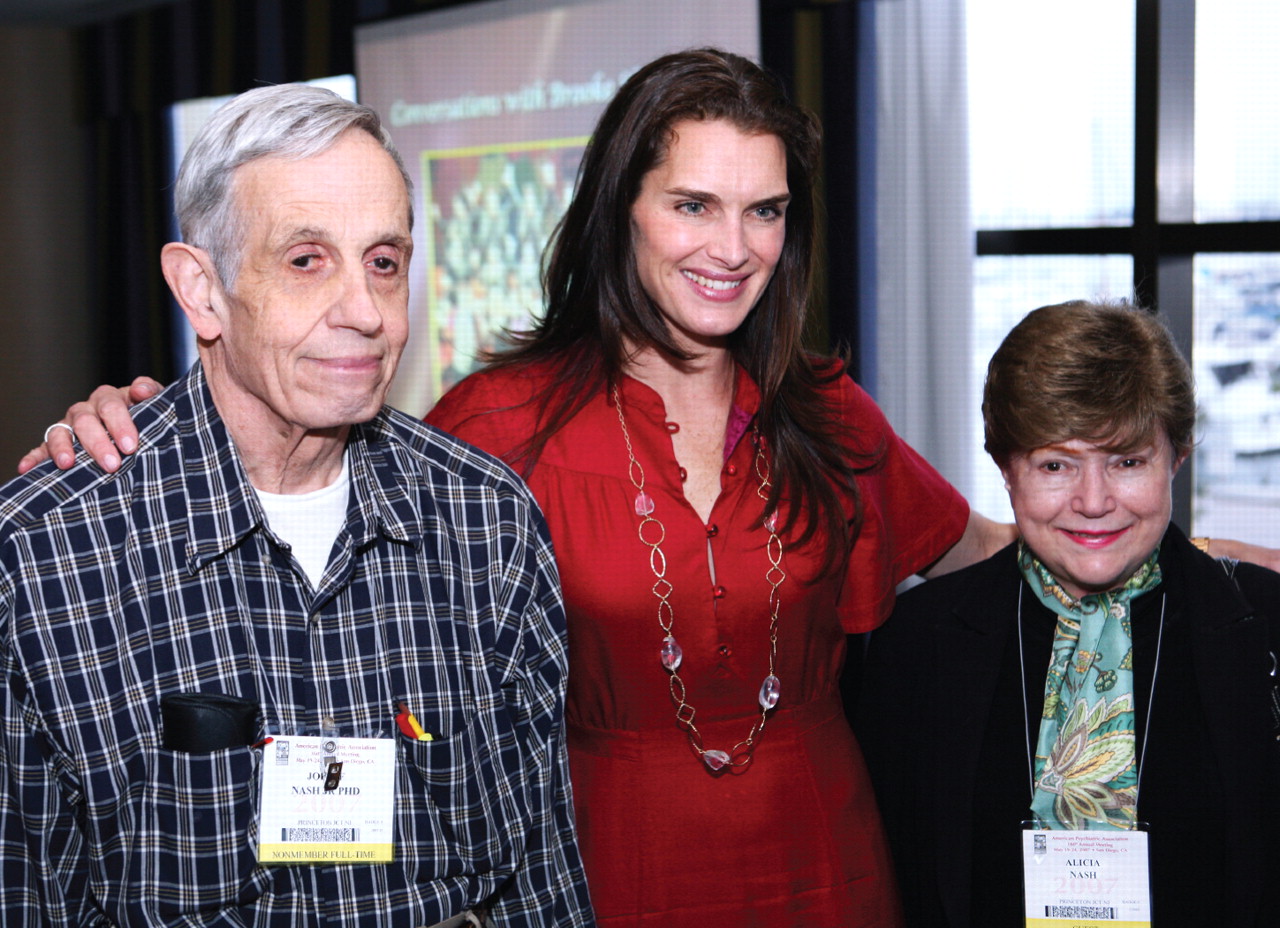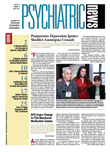“From the minute I had her, there was a complete lack of association with the baby, let alone any connection. I had no desire to breastfeed—even the smell of the powder on the diapers made me feel like I was going to pass out.
“Her cry meant nothing to me.”
That's how Brooke Shields described the first symptoms of what she would later learn was a severe case of postpartum depression.
The actress and former model might be said to have had a picture-perfect life until then. A statuesque beauty, Shields began her modeling career as a child and landed a role in the movie “Pretty Baby” at age 12. Later she would appear in “Blue Lagoon” and “Endless Love” and achieve near-icon status as a model for Calvin Klein jeans. Among her television creditsis the starring role in the TV sitcom“ Suddenly Susan,” which aired on NBC from 1996 to 2000.
But the birth of her daughter Rowan Francis in 2003 was hardly a storybook beginning to Shields's career as a mother.
Shields shared her experiences in May in an interview with Psychiatric Newss at APA's 2007 annual meeting in San Diego and at the annual“ Conversations” event sponsored by the American Psychiatric Foundation. She described a harrowing episode that clearly went well beyond anything encompassed by the phrase “baby blues.”
“I hate that term,” she told Psychiatric News.“ It sounds like a cartoon. It's gotten used so frequently, it's become a throw-away, and I think it trivializes the disorder. People say, 'Oh, it's just the baby blues; it will pass.'
“My only knowledge at the time of the term 'postpartum disorder' was of the more extreme postpartum psychosis,” Shields said. “Now I know the difference, but at the time I would have said 'Oh, that's only those people who harm their children.' What I didn't know is that there is a whole range of symptoms between what is called 'baby blues' and psychosis, a range of postpartum depressive symptoms that applied to me.”
Those symptoms included a palpable aversion to the baby she now adores.“ Today, I can hear my baby's cry floors away and know exactly what it means,” she said, “but at the time I had no desire to kiss or hold her.”
At the one-week visit with the pediatrician, Shields told the doctor that she “couldn't have this baby.”
She continued, “It was as if I was being kidnapped, and he was the police and he was going to get me out. I told him, 'I just can't do this.... I'm sure she's a nice baby, but I need to go.' It was bizarre and freaky and almost humorous.”
It was Shields's obstetrician who followed up a day or two later with a phone call and suggested she had postpartum depression. He asked her whether she would consider taking medication.
“I laughed and turned sarcastic and angry,” Shields recalled.“ I said, 'I'm sorry, I don't have postpartum depression. And I've never taken a pill before to get me through something. That's not my M.O. I don't break down and take medication to get better.'
“I thought all these people just didn't understand that having the baby was something I shouldn't have done, that I'd made a horrible mistake.”
It was when her husband, Hollywood screenwriter Chris Henchy, broke down that she first realized the gravity of people's concern—if not the severity of her own condition. “He'd gone out to get some things for the baby, and when he came back he sat down on the bed and started to cry,” Shields said. “He looked at me and said, 'There are women out there who are happy. What's wrong with you?'
“And I had no inclination to try to make him feel better, which is completely unlike me,” Shields said.
But the incident was enough to convince her to begin treatment. The treatment proved successful, and her condition began to improve—at which point she quit the medication abruptly. Not surprisingly, her condition nose-dived, and following a harrowing episode that included suicidal thinking, she was back on the meds.
This time she stuck to the treatment, and there came a time when Shields could finally claim to know what every mother feels about her own baby.“ I have it on tape, the time when it finally hit me—this is what it's all about. Now I'm telling all my girlfriends, 'You have to do this; you have to have a baby.'”
And last year Shields and husband celebrated the birth of their second child, Grier Hammond, on April 18.
She went on to write a book about her experience, Down Came the Rain: My Journey Through Post-Partum Depression (Hyperion Books, 2005). And she made several high-profile appearances to talk about that experience, which attracted the attention of Hollywood star Tom Cruise, a member of the Church of Scientology.
Cruise used the opportunity to express publicly his disdain for psychiatry and psychiatric treatment, and to deride the concept of postpartum depression as a psychiatric illness.
Shields fired back with an op-ed piece in the July 1, 2005, New York Times. “Comments like those made by Tom Cruise are a disservice to mothers everywhere,” she wrote. “If any good can come of Mr. Cruise's ridiculous rant, let's hope that it gives much-needed attention to a serious disease.”
In the interview with Psychiatric News at APA's annual meeting, Shields said the popularity of Scientology in Hollywood was part of a tradition of attraction to fashionable panaceas.
“I think Hollywood has always been attracted to some form of savior,” she said. “It's a group mentality, a very insecure industry that is sometimes predicated on the diminishing of other people so that my success is your failure. It breeds insecurity, and any answer that sounds positive is something that people will react to.”
So what can she tell psychiatrists they may not already know about postpartum depression?
“It's time to focus on this more,” said Shields, who added that she has since talked to countless women—including close friends—who have experienced similar, if not quite so severe, symptoms that went unrecognized.
“There is a medical side of it that doctors know about, but there is also a stigma that needs to be lifted. And the condition needs to be presented to women in such a way as to lift the stigma.
“The medical part I could deal with,” Shields said, “but it was the label that I was very uncomfortable with, that was so shameful.” ▪

